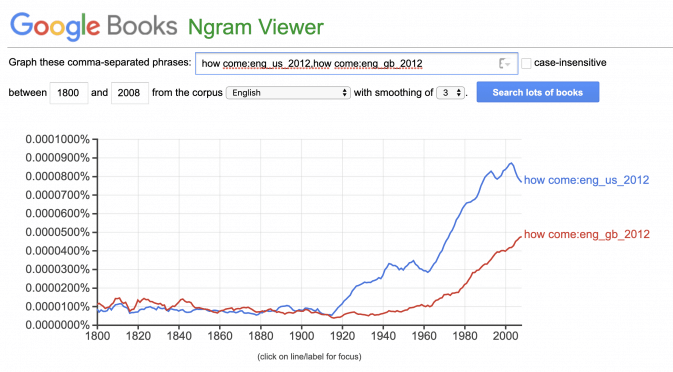
A listener named Barbara wrote in wondering about the phrase “how come.” She wrote:
The other day I was formulating a question for a Google search in my mind and started out with the phrase "How come...." I then quickly realized that I should probably use the word "Why" instead. Then I noted to myself that my natural tendency was to say "How come..." instead of "Why..." and this made me wonder how common that is. Is it a regional kind of thing, where people in certain parts of the world would tend to say one more than the other? Or is it a speaking vs. writing issue? Formal vs. informal? Or what?
Well, that’s a great set of question, Barbara!
'How come' is more common in the United States than in Britain
The oldest reference for "how come" in the Oxford English Dictionary (OED) is an entry in Bartlett's Dictionary of Americanisms published in 1848. Now although the OED says "how come" was invented in the United States, the entry in Bartlett's indicates it originated in England. The entry reads, "Doubtless an English phrase, brought over by the original settlers."
Regardless of whether "how come" truly originated in the United States, a search of the text in books scanned by Google Books show that at least in those book, it is still more common in American English than British English. So there are regional differences, at least at the country level.
'How come' is more informal than 'why'
“How come” is considered to be more informal than “why.” The OED labels it as colloquial, and you’re more likely to see it on Twitter than in a corporate annual report.
As for speaking versus writing, this is getting a little bit beyond my research skills, but if I control for how big the databases are, it looks like “how come” appears more often in a corpus of spoken English than in a corpus of written English, and that matches what my guess would be. Since it’s informal, I’d expect it to be more common in spoken English than in written English. ...
Keep reading on Quick and Dirty Tips
Tidak ada komentar:
Posting Komentar